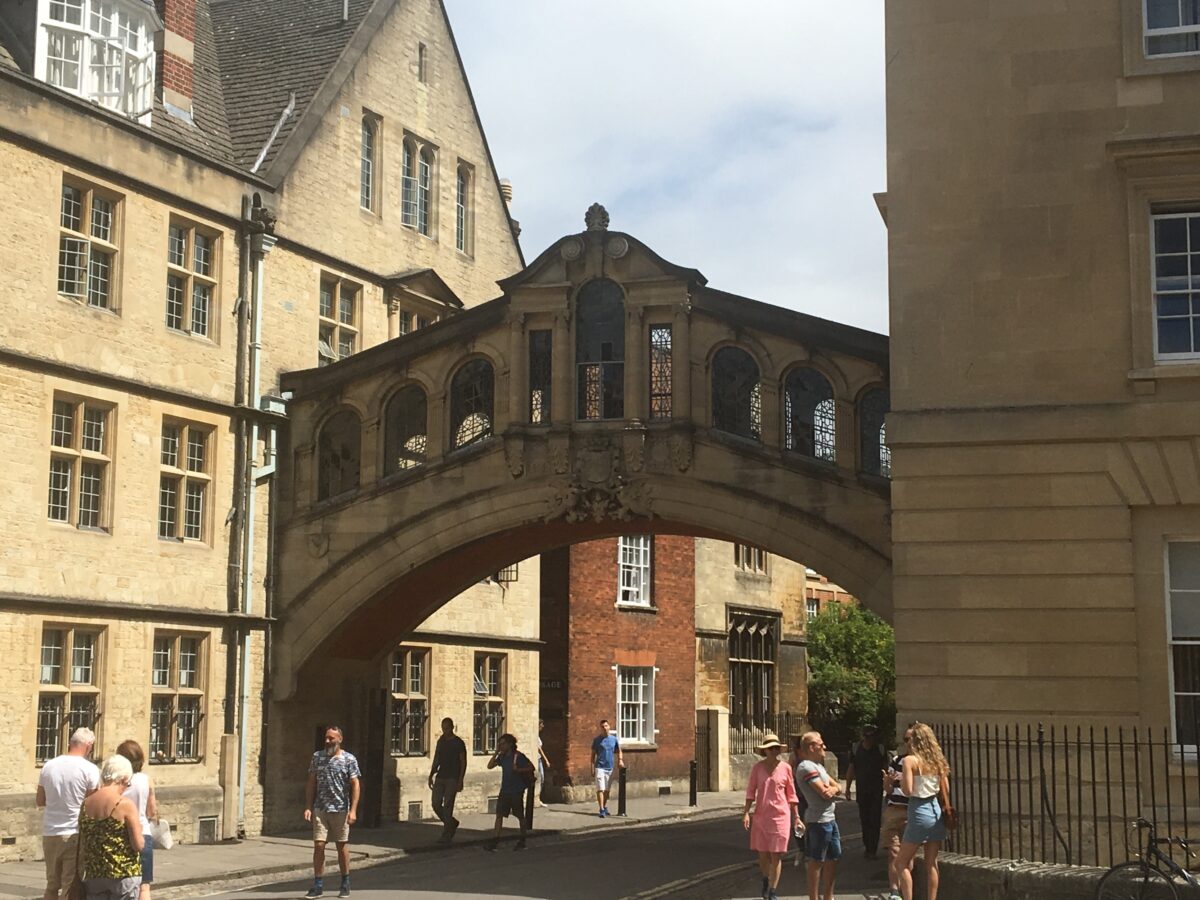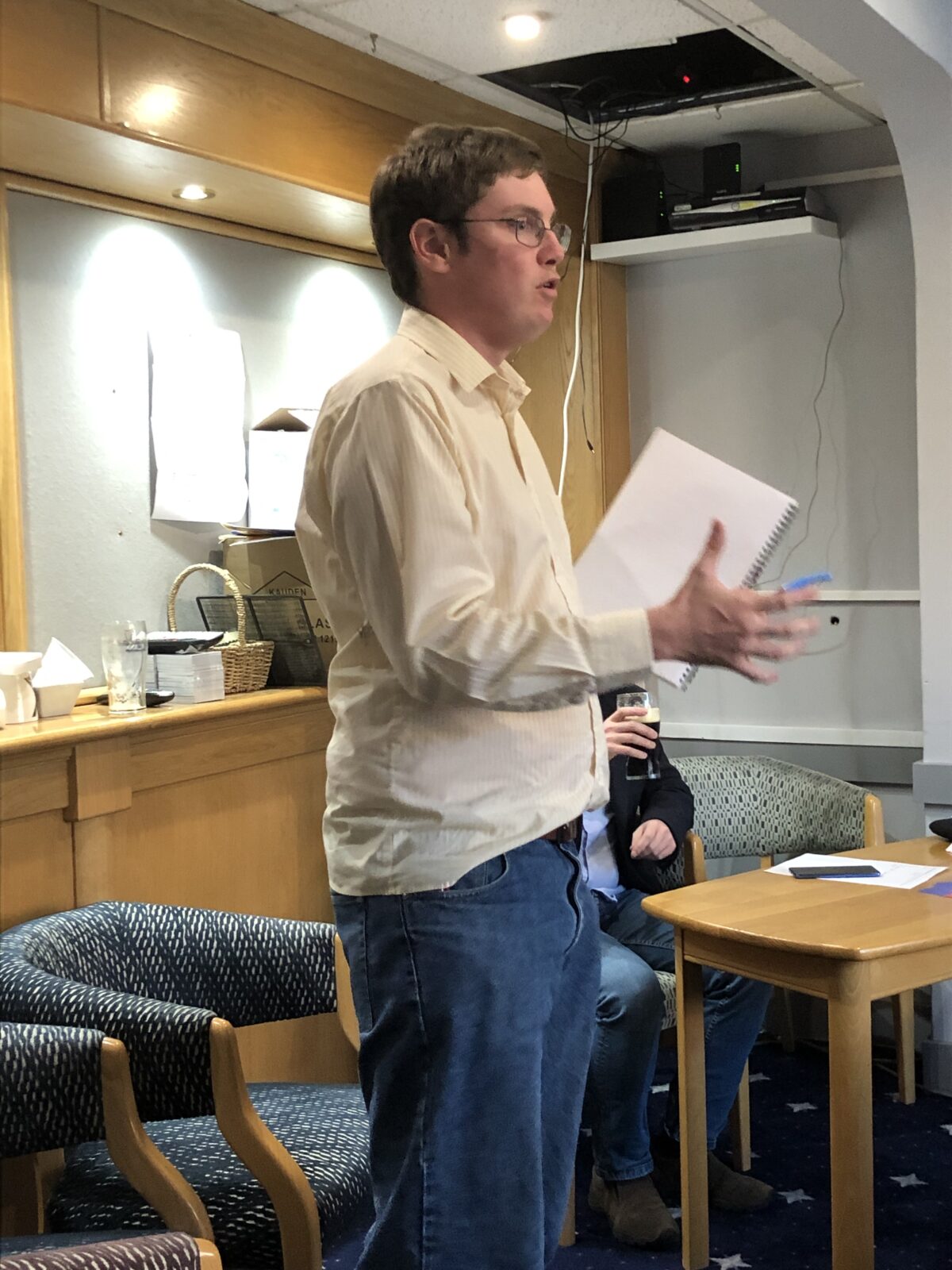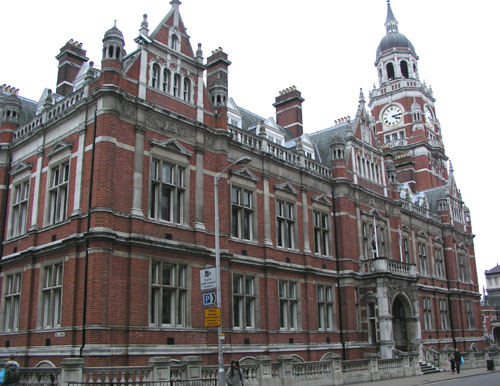By Mike Swadling
“I don’t feel I would have this problem if I worked for the government. I mean for starters they don’t seem to have anything that works”
I have a habit of referring to things that work as Ronseal Quick Drying Woodstain. Many of you will remember the 1990s advert that proclaimed that Ronseal Quick Drying Woodstain, does exactly what it says on the tin.
One of the challenges with this and my many other 80s/90s British TV references is that in these increasingly interconnected times the person I’m speaking to either isn’t in the U.K. or doesn’t remember most of the 90s let alone the 80s.
I don’t feel I would have this problem if I worked for the government. I mean for starters they don’t seem to have anything that works and there is certainly nothing that does exactly what it says on the tin.
“Surely, they are driving the water companies to invest more and improve services. They must surely be imposing fines on water companies for reduced service to customers through hosepipe bans. No, quite the opposite”
The list is endless, as I write this, we have had a drought declared in some parts of the country. We have also seen many news stories lamenting the lack of any new reservoirs in a period the population has increased by about 10 million. Thames Water has a desalination plant they have never used, whilst at the same time they are imposing hosepipe bans.
With all this going on where are Ofwat the water regulator? Where is the Environment Agency? Surely, they are leading the fight to get people water. Surely, they are driving the water companies to invest more and improve services. They must surely be imposing fines on water companies for reduced service to customers through hosepipe bans. No, quite the opposite. Ofwat commissioned a 2018 paper “to analyse and present the options available for making deep reductions to per-capita consumption over a minimum fifty-year period”. Water companies are far from blameless for the failure to keep a plentiful supply of water flowing, but when Thames Water did try to build a new reservoir in Oxfordshire, the Environment Agency blocked it on the grounds there was apparently no need for it. This isn’t all that new, the 2014 flooding of the Somerset Levels, was widely blamed in part on the Environment Agency’s decision to stop dredging the rivers, something they were tasked with undertaking, for the purpose of reducing flooding.
But it’s not just water management that doesn’t work in the UK. The Department for Business, Energy and Industrial Strategy exists yet our island made of coal, with gas and oil reserves and an advanced nuclear power industry, is not expected to have enough power generation this winter. Of course, as is made clear in a March statement to Parliament, the department puts every barrier in the way to fracking. Not long before he became Deputy Prime Minister, that visionary Nick Clegg expressed his opposition to new nuclear power stations as they would take too long to come online. Of course, the prediction had they been commissioned then is they would have come online about now, right when we need them!
Net Zero and the green agenda are in large part behind these departments working towards grand environmental plans, rather than for the benefit of taxpayers. But it’s not just on the environment our government lacks the essence of doing what it says on the tin, take for example public health. Public Health England before they were dissolved had some 5,000 staff, who whilst very productive at telling us how to live our lives were woefully under prepared for Covid 19. Public Health didn’t protect the publics health, they did however lead to the shutdown of our economy and massive loss of freedom.
Failure is in all parts of our government. Paul Lincoln the disastrous Director General of the Border Force from 2017 to 2021, described ‘bloody borders’ as ‘just such a pain in the bloody a***’. Nationally the Police failed to solve a single theft in 84% of neighbourhoods in the past 3 years. 70% of Metropolitan Police officers didn’t make a single arrest in the past year and the RAF has seemingly stopped recruiting on ability but now recruit based on wokery. We have a Bank of England that is charged with keeping inflation at around 2%, yet no one is losing their well-paid jobs as inflation soars above 10%. None of these departments are Ronseal Quick Drying Woodstain, they are not even close. The departments we pay taxes for, and the regulators we rely on, are consistently working against us.
“we need some desire from government to actually act to improve the lives of the citizens of the UK. Let’s assume for a moment the next Prime Minister ushers that in, and I’m not saying I expect them to, but it is a prerequisite”
What can be done about this? Firstly, we need some desire from government to actually act to improve the lives of the citizens of the UK. Let’s assume for a moment the next Prime Minister ushers that in, and I’m not saying I expect them to, but it is a prerequisite. We need to start with a requirement government departments and quangos act to improve the standard of living of law-abiding UK citizens.
The improvements they are planning to deliver needs to be codified, and for this all-government departments at all levels need published Key Performance Indicators (KPIs) or targets. Much maligned as targets are, without them we simply have no measure of success, or even an indication of what a department is trying to achieve. There will be problems, some departments will focus on targets to the exclusion of other activity. Some may cook the books on the numbers, and if staff submit fraudulent data, then action should be taken. Others will set easily achieved goals, fine, better to achieve an easy goal that benefits us, than to actively work against our interests. We will be able to see what an area of government believes is its purpose, and what success it has in achieving that goal.
It seems as if nothing in government works. Let’s get back to first principles across the state, with for instance a Police force who police, a Border force who protect the borders, water regulators who believe in ensuring people have water. And with a costs of living crisis upon us, and a few troubled years ahead, lets hope someone in government apply the principles of Ronseal Quick Drying Woodstain, to provide the services we pay for.














